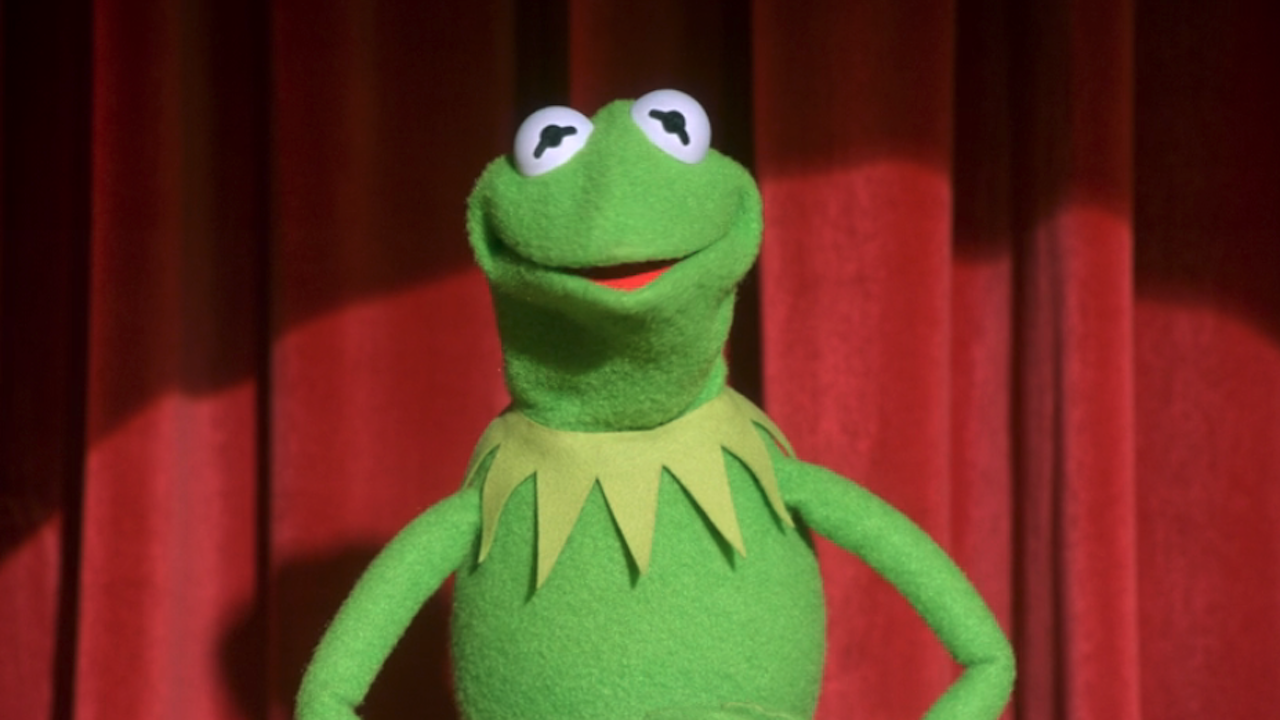Adapting Stephen King's Secret Window, Secret Garden: Peering Into 2004’s Secret Window Starring Johnny Depp
Break out your corncob holders!

Your Daily Blend of Entertainment News
You are now subscribed
Your newsletter sign-up was successful
When Stephen King was in Colorado during the filming of the 1997 miniseries version of The Shining, he was inspired to pursue something that he had never tried before: adapting someone else’s work. During his down time on the shoot, he watched the Danish series The Kingdom, made by filmmaker Lars von Trier, and he was so affected by the material that he decided he wanted to develop an English language version.
The problem he immediately faced was getting a hold of the rights. As he describes in his interview with Tony Magistrale for the book Hollywood’s Stephen King, The Kingdom was owned by Columbia Pictures, and the studio was in the process of trying to turn it into a feature film – thus, not willing to sell. Fortunately for King, screenwriters had a devil of a time squeezing the content of the eight-episode original into a two hour package. After developing a number of unworkable drafts, the studio was in a position to negotiate with the author.
A trade was made. Stephen King got the rights to The Kingdom, which he remade as 2004’s Kingdom Hospital. Columbia Pictures acquired “Secret Window, Secret Garden,” one of the four novellas from the 1990 collection Four Past Midnight. Said King of it in the interview,
My novella is the right length – it's small, and it's in one place. Columbia now has the chance to make a great feature.
Anthony Minghella, the director of The Talented Mr. Ripley and The English Patient, was briefly attached to helm the Stephen King adaptation, but ultimately the job went to David Koepp – who was coming off the success of writing the screenplay for Sam Raimi’s Spider-Man, which Columbia Pictures produced. With “Secret Garden” being largely associated with the novel by Frances Hodgson Burnett, that half of the title was axed, and Secret Window starring Johnny Depp went into production in the summer of 2003, splitting time between Québec, Canada and New York.
Released in March 2004, the film has a mixed legacy. Arriving less than a year after Gore Verbinski’s Pirates Of The Caribbean: The Curse Of The Black Pearl, Johnny Depp’s star power was skyrocketing… but critics on the whole didn’t respond to the trope-heavy thriller. Secret Window has some style to it, but an argument can be made that it was doomed from the start – and that’s what is really at the core of this week’s Adapting Stephen King.
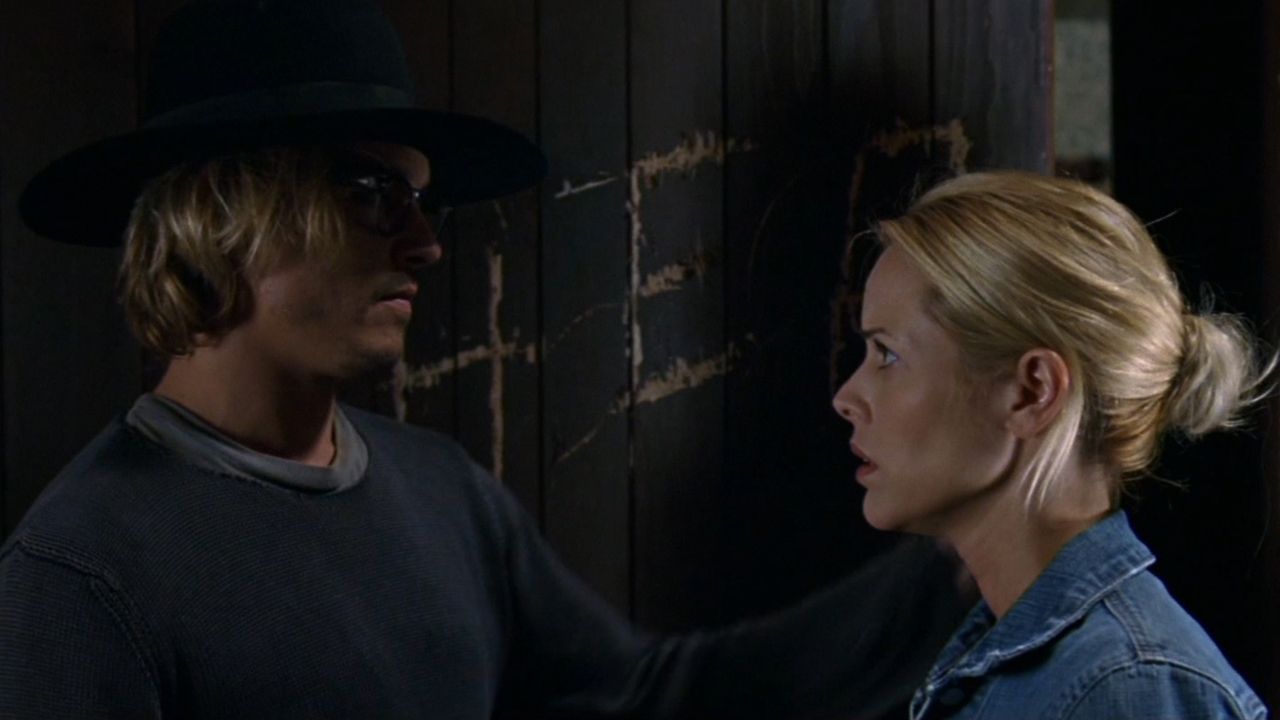
What “Secret Window, Secret Garden” Is About
Being perhaps the most dedicated professional writers alive, Stephen King seems to have endless thoughts on the work and the process, and he regularly channels his musings through the stories he tells and the characters he creates. “Secret Window, Secret Garden” exemplifies this tendency, and what’s funny is that King sees it as a kind of middle child between two of his other works that tackle similar subject matter: Misery and The Dark Half.
In the preface before “Secret Window, Secret Garden” in Four Past Midnight, Stephen King explains that the origins of the novella can be traced back to when he was writing The Dark Half – which was a book he wrote partially in response to his alter ego, Richard Bachman, being exposed. In that novel, the protagonist, author Thad Beaumont, comes face-to-face with George Stark, a supernatural physical manifestation of his bloodthirsty pseudonym. It’s King exploring “the powerful hold fiction can achieve over the writer,” which mirrors how Misery is about the influence that fiction can have on the reader.
Your Daily Blend of Entertainment News
“Secret Window, Secret Garden” is Stephen King’s attempt at executing both ideas simultaneously in the same narrative – executed through the conflict between novelist Morton Rainey and a mysterious stranger named John Shooter, who accuses Mort of stealing one of his stories.
The protagonist, who is in the middle of ugly divorce proceedings after discovering that his wife has been unfaithful, first meets Shooter when the Mississippi dairy farmer arrives on the doorstep of his remote home in Maine. The Quaker hat-wearing mystery man presents Mort with a short story titled “Secret Window, Secret Garden” that bears striking resemblance to a horror tale the author wrote called “Sowing Season,” and he demands Mort admit to the plagiarism.
Mort is certain that he didn’t steal the story, knowing it was published in a literary magazine years prior to when Shooter says he wrote his version – but the accuser demands physical proof. As the writer tries to hunt down a copy of the publication, Shooter demonstrates that he isn’t messing around, escalating his behavior from killing Mort’s cat to burning down the house he used to share with his wife.
Wanting to handle the situation himself and not get the police involved, Mort tries to hunt John Shooter down himself while simultaneously attempting to get a copy of the magazine, and it leads him down a rabbit hole that forces him to confront some terrifying realities.
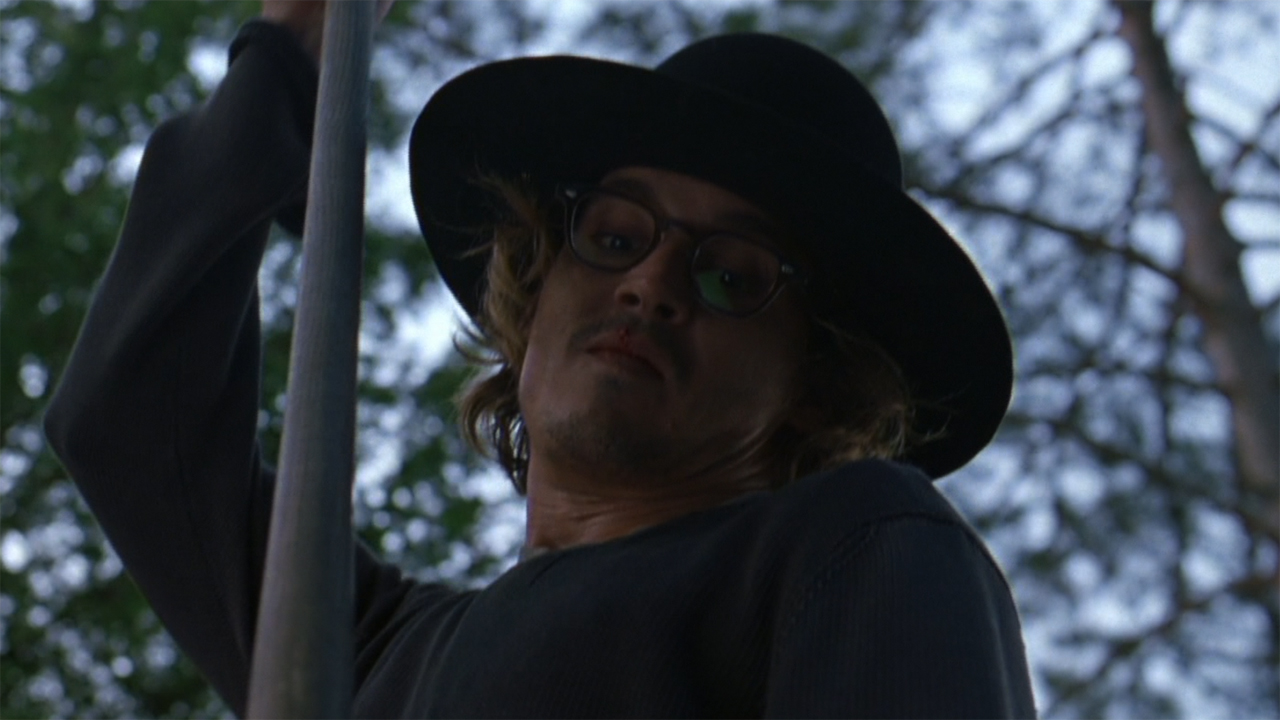
How David Koepp’s Secret Window Differs From “Secret Window, Secret Garden”
The fact that “Secret Window, Secret Garden” primarily centers on one character in one location gives Stephen King license to have the majority of conflict and drama in the novella play out inside Morton Rainey’s head… but for reasons that should be obvious, David Koepp couldn’t directly translate that in the making of Secret Window. As a result, the film changes quite a bit from the original story, including the addition of a whole new ending.
Some of the alterations are minor. For example, Mort (Johnny Depp) doesn’t have a cat in the movie, and instead has a nearly blind dog named Chico – though they do suffer the same fate. The adaptation also changes the timeline of Shooter’s terror campaign, as the death of the author’s pet and his house burning down don’t happen on the same night like they do in the source material. This ends up eliminating the debate in the story regarding whether or not the antagonist could have committed both crimes.
Because the movie can’t have Mort internally rationalize why he doesn’t want to go to the police following his pet’s murder, the adaptation sees the character make much more of an effort to get outside help. This includes going to the local sheriff, Dave Newsome (Len Cariou) – who is only briefly mentioned in Stephen King’s version – and then hiring a private detective named Ken Karsch (Charles S. Dutton) for help and protection.
In the film, Karsch winds up becoming a substitute for Greg Carstairs, who is the caretaker of Mort’s home in the novella and ends up assisting in the John Shooter investigation. Both he and Karsch are killed under the same circumstances.
Perhaps the biggest change in Secret Window outside of the ending is regarding Mort Rainey’s history of plagiarism prior to his encounter with Shooter. In Stephen King’s original text, Mort recalls late in the narrative that he once stole a story from a classmate in a creative writing class, and while he kept waiting for some kind of consequence, nothing ever happened. The guy’s name was John Kintner, and he – with emphasis on his first name – becomes half of the puzzle in the big twist: Mort Rainey and John Shooter are the same person.
(In both versions, the “Shooter” part comes from the hometown of Ted Milner [Timothy Hutton], the man who was having an affair with Mort’s wife – though it’s Shooter's Bay, Tennessee in the movie, and Shooter's Knob, Tennessee in the book.)
David Koepp’s adaptation has a bizarrely different approach to Mort’s history stealing stories. Relatively early in the film, his ex-wife Amy (Maria Bello) mentions the incident in passing, and later it’s said that the only people who know about what happened are Mort, Amy, the person he plagiarized, and the lawyers. The name “John Kintner” is never mentioned.
Also added to the movie is John Shooter’s claim that Mort Rainey rewrote his original ending – and while this doesn’t make any real sense within the narrative, it’s basically a meta “joke” referencing the fact that the film and novella have different endings. Both have Mort discovering that he has had a psychotic break, but as written by Stephen King, “Secret Window, Secret Garden” ends when Mort tries to kill Amy and is himself gunned down by a man named Fred Evans.
In the movie, Mort essentially reenacts the crime that is featured at the end of the short story that he wrote – which is to say that he kills both Amy and Ted, buries them in his garden, and feasts upon the corn that grows from the soil around their bodies.
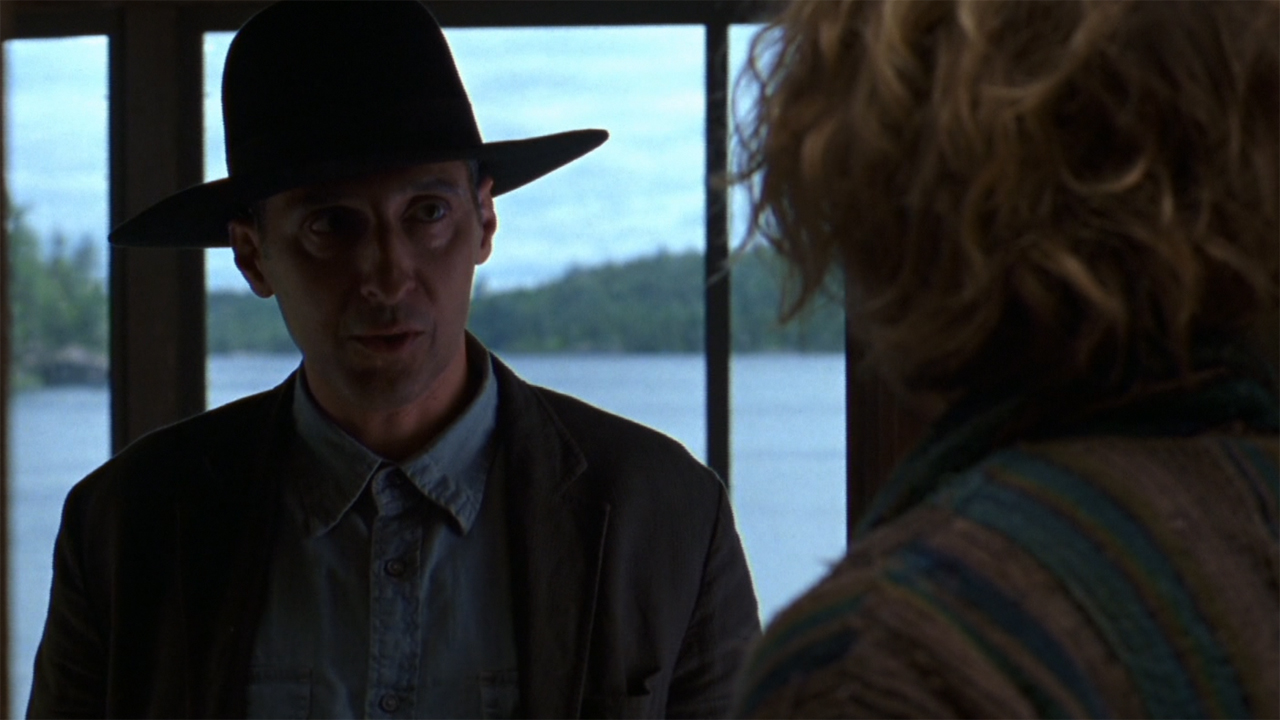
Is It Worthy Of The King?
The only idea more overused than serial killers is multiple personality.
That’s a quote from Charlie Kaufman (as portrayed by Nicolas Cage) in Spike Jonze’s Adaptation, a movie that has nothing to do with Secret Window, and was released a little over a year earlier, but it pops in my brain every time I think about Stephen King’s novella and David Koepp’s adaptation. The “multiple personality” twist is a boring one that one would expect to be beneath the creative mind of the author – and yet he tried it out with “Secret Widow, Secret Garden,” and his mediocre story was turned into a less-than-mediocre movie.
Koepp’s movie has some style, with some nifty tracking shots that travel through mirrors utilized to take audiences in and out of Mort’s perspective, but its greatest flaw is an inability to otherwise make the narrative cinematic or engaging. The director discusses in the home video supplemental materials that he actively avoided sequences where the protagonist is doing any writing, as it’s not an activity that is particularly engaging to watch… and yet Secret Window is a film that has more scenes with the main character napping than any other I can think of.
These naps are vital in their own way to the narrative, as it’s when Mort is dozing that John Shooter gets down to his business, but it’s also a blunt storytelling tool when it comes to a twist involving Dissociative Identity Disorder and doesn’t provide any fun reward in a second viewing. It does legitimately have a better ending than Stephen King's story, which fizzles out undramatically, but it's still a mostly dull movie that you only need to watch once to “get” – unless you find yourself in the mood to try and count the number of product placement efforts for Mountain Dew and Doritos.
If you’re looking to read a Stephen King story about a character grappling with split personalities, The Dark Half is a vastly superior choice over “Secret Window, Secret Garden,” and the same can be said of George A. Romero’s adaptation of the former versus David Koepp’s adaptation of the latter (though Timothy Hutton fans really win either way).
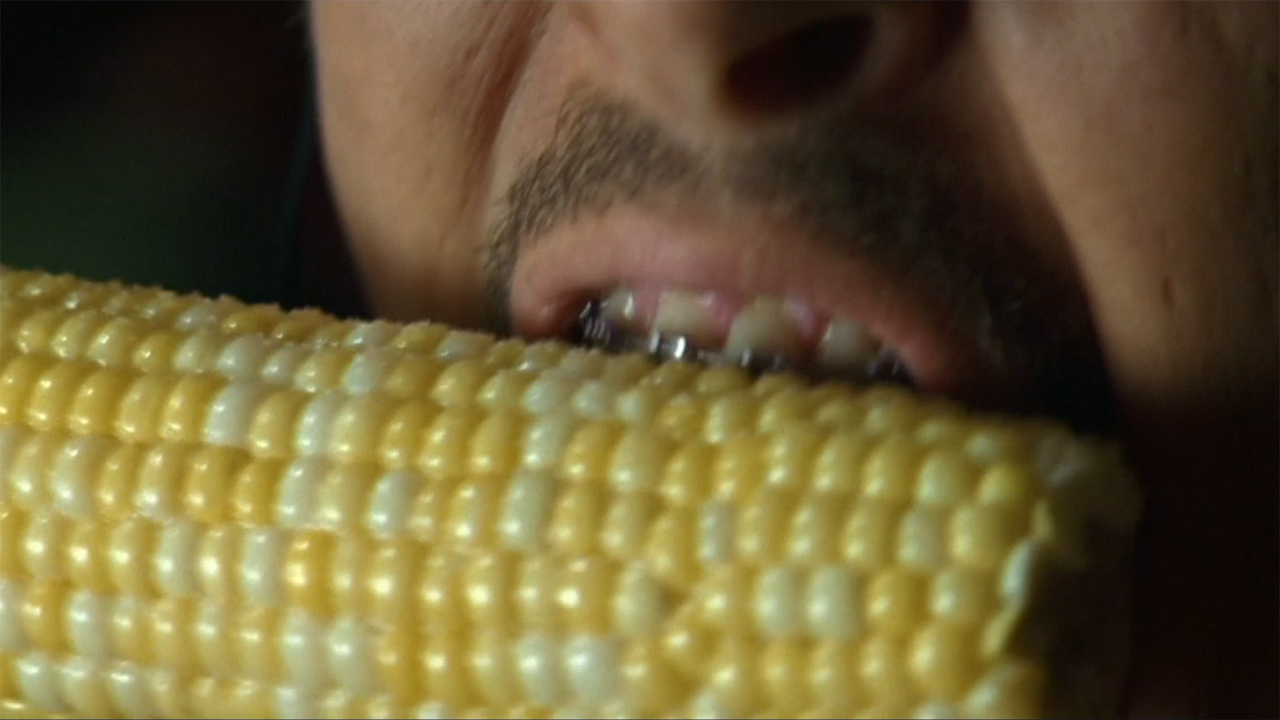
How To Watch David Koepp’s Secret Window
If you have a Netflix subscription, you can start watching David Koepp’s Secret Window as soon as you finish reading this article. On the other hand, if you don’t have access to the streaming service, you still have plenty of watch options. The movie is available to either rent or purchase digitally at major retailers – including Amazon, Vudu, Google, and Apple – and for those of you building the Ultimate Stephen King collection, Sony Pictures Home Entertainment released the film on Blu-ray in 2007 (it includes all of the special features from the DVD release, including a director’s commentary track and multiple featurettes).
For next week’s Adapting Stephen King, I’ll be taking a return trip to Jerusalem’s Lot for an in-depth look at 2004’s Salem’s Lot – the TNT miniseries from 2004 directed by Mikael Salomon. How does it compare to both the book and Tobe Hooper’s beloved version from 1979? Look for the piece in the CinemaBlend TV section on Wednesday, and in the meantime you can read past installments of this column by clicking through the banners below.







Eric Eisenberg is the Assistant Managing Editor at CinemaBlend. After graduating Boston University and earning a bachelor’s degree in journalism, he took a part-time job as a staff writer for CinemaBlend, and after six months was offered the opportunity to move to Los Angeles and take on a newly created West Coast Editor position. Over a decade later, he's continuing to advance his interests and expertise. In addition to conducting filmmaker interviews and contributing to the news and feature content of the site, Eric also oversees the Movie Reviews section, writes the the weekend box office report (published Sundays), and is the site's resident Stephen King expert. He has two King-related columns.
